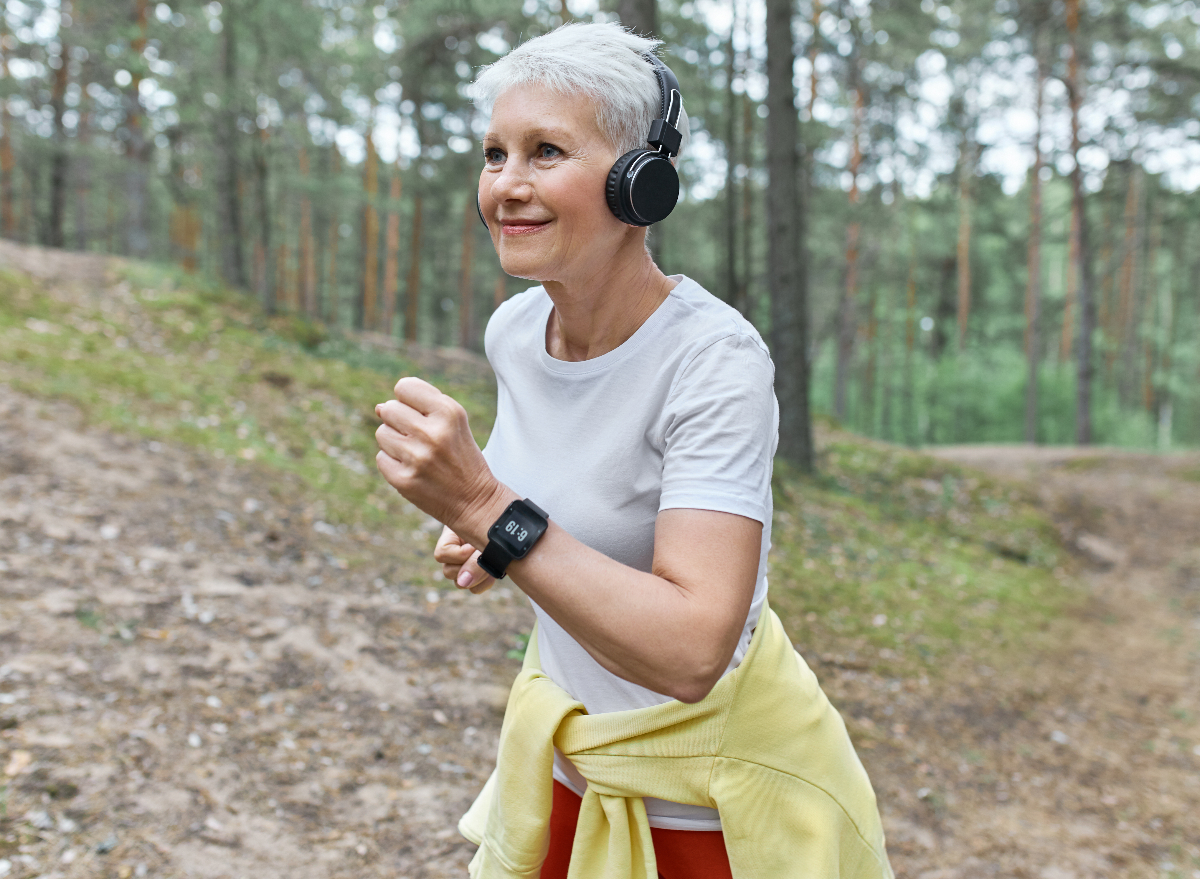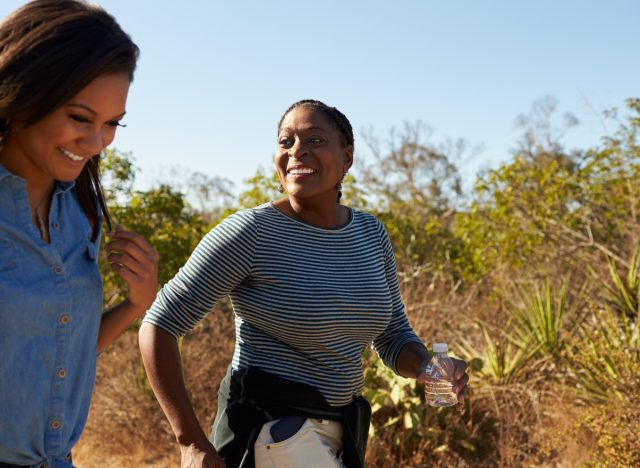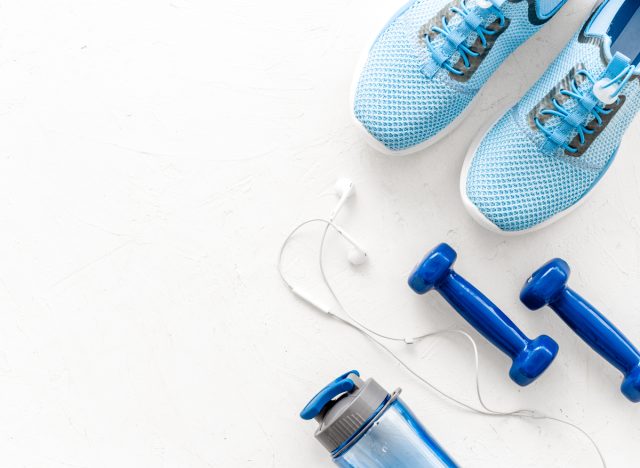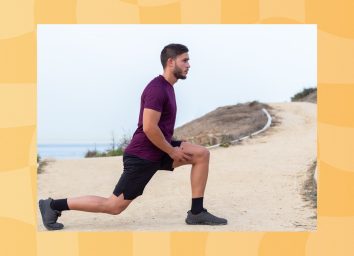A Doctor's Recommended Cardio Workout for People Over 50

As you near your 50s, there are many priorities you should have down pat. This includes following a solid plan for financial security and retirement, spending plenty of time living your dreams, and taking consistent care of your health and wellness. The last one on this list is a biggie, because let's be honest: If you don't keep your body in good working order, you may not be around to kick back and enjoy the hard work you put into life's journey! First on deck for your bucket list should be a doctor's recommended cardio workout for people over 50. You heard that right! This self-love "to-do list" should be your #1 priority, so listen up.
Why is performing cardio so important as you age?

We can't stress enough just how important cardio exercise is as you grow older—especially once you hit your 50s. According to the World Health Organization (WHO), the highest cause of mortality in the world is from cardiovascular diseases (CVDs). In fact, in 2019, CVDs were the cause of death of approximately 17.9 million individuals. Heart attacks and strokes contributed to 85% of these deaths. Pretty alarming, don't you think? We reached out to Mike Bohl, MD, MPH, ALM, the Director of Medical Content & Education at Ro and a member of our Medical Expert Board, to learn more.
The majority of CVDs can be avoided by making certain lifestyle changes. According to the Centers for Disease Control and Prevention (CDC), avoiding smoking cigarettes, getting in regular physical activity, and maintaining a healthy weight are all key players in preventing heart disease. When it comes to fitness, Dr. Bohl explains that cardio is one of the top exercises you can include in your routine—especially as you grow older.
He reveals, "One of the main benefits of cardio is that it gets your heart beating and encourages efficient blood flow and oxygen delivery to the tissues in the body. This helps keep your blood vessels compliant (instead of stiff) and is tremendously beneficial for preventing heart disease and blood vessel disease. Cardio is also very important for improving insulin sensitivity, which can help protect against diabetes."
Exercise is essential in supporting your immune system, too, and helps to avoid infections. Dr. Bohl adds, "Additionally, depending on the type of cardio you're doing, you may also be strengthening the muscles (which allows you to maintain functional status into old age) and strengthening the bones (reducing the risk of osteoporosis and fractures)."
Squeeze in a bike ride or play a round of pickleball with friends.
If you're not particularly good at getting in cardio, no worries. We have a solid cardio workout for people over 50 that you can start doing right now.
There are so many ways you can benefit from cardio exercise, so you can choose something based on the equipment you have and what you will keep up with. Some great choices are swimming, biking, using a treadmill or an elliptical machine, and getting involved in fun team sports like pickleball or tennis. The most effective routine is the one you're more inclined to keep up with.
Sometimes, the simplest plan works best, since you will make time to do it each and every day. For instance, taking a brisk 30-minute walk outdoors is an ideal workout for people over 50. Dr. Bohl offers some great tips to get the most out of your walk. These steps will keep your breathing rate and heart rate at an elevated level, and they're easy habits.
Grab a pair of light weights to challenge your walk.

"During your walk, keep your feet moving—even if you're stopped at a crosswalk. You can march in place until it's time to start walking again," Dr. Bohl suggests. In addition, "Pump your arms back and forth as you walk, to get motion going in your upper body as well." To add some extra goodness, bring a pair of light weights to hold throughout your jaunt.
Prepare a fast-paced playlist to encourage a faster pace.
Help the time go by efficiently by listening to a handpicked playlist, adding only songs that have a fast beat. You'll rock and roll as you listen to your music by walking to the beat. Not only will it be fun, but it will also help you maintain a faster pace.
Dr. Bohl recommends, "If you're brisk walking for 30 minutes, you should do this approximately five times a week. If you prefer longer walks on fewer days, that's okay too—just aim to get a total of at least 150 minutes (in whatever combination of days/time lengths you want) per week."








